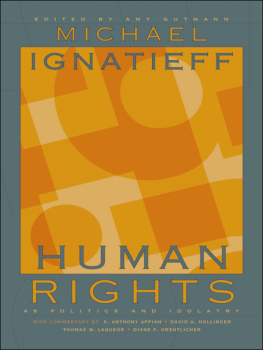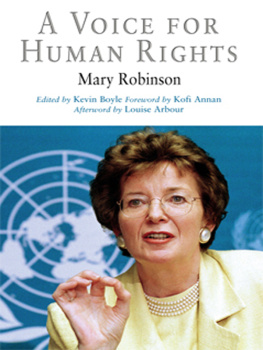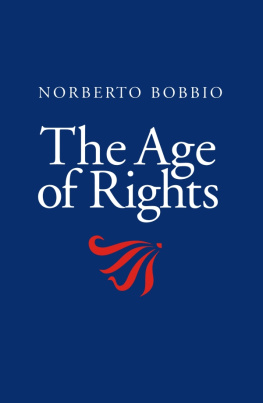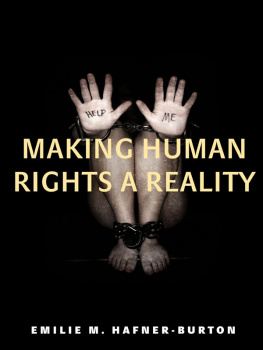CONTRIBUTORS

K. ANTHONY APPIAH, Charles H. Carswell Professor of Afro-American Studies and of Philosophy at Harvard University, is the author of Color Conscious: The Political Morality of Race (with Amy Gutmann) and coeditor (with Henry Louis Gates Jr.) of The Dictionary of Global Culture and the CD-ROM Encarta Africana.
AMY GUTMANN, Laurance S. Rockefeller University Professor of Politics at Princeton University, is the author of Color Conscious (with K. Anthony Appiah), Democracy and Disagreement (with Dennis Thompson), and most recently a new edition of Democratic Education.
DAVID A. HOLLINGER, Chancellor's Professor of History at the University of California at Berkeley, is the author of Science, Jews, and Secular Culture: Studies in Mid-Twentieth-Century American Intellectual History, and Postethnic America: Beyond Multiculturalism.
MICHAEL IGNATIEFF, writer, historian, broadcaster, is currently the Director of The Carr Center for Human Rights Policy at The Kennedy School of Government, Harvard University. He is the author of Virtual War: Kosovo and Beyond and Isaiah Berlin: A Life, among others.
THOMAS W. LAQUEUR, Professor of History at the University of California at Berkeley, is the author of Making Sex: Body and Gender from the Greeks to Freud.
DIANE F. ORENTLICHER, Professor of Law and Director of the War Crimes Research Office at American University, is coeditor of Human Rights, with Louis Henkin, Gerald L. Neuman, and David W. Leebron.
HUMAN RIGHTS AS
POLITICS
AND IDOLATRY

MICHAEL IGNATIEFF
COMMENTS

RESPONSE TO
COMMENTATORS

MICHAEL IGNATIEFF
Human Rights as Politics

HUMAN RIGHTS AND MORAL PROGRESS
In If This Is a Man, Primo Levi describes being interviewed by Dr. Pannwitz, chief of the chemical department at Auschwitz. Securing a place in the department was a matter of life or death: if Levi could convince Pannwitz that he was a competent chemist, he might be spared the gas chamber. As Levi stood on one side of the doctor's desk, in his concentration camp uniform, Dr. Pannwitz stared up at him. Levi later remembered:
That look was not one between two men; and if I had known how completely to explain the nature of that look, which came as if across the glass window of an aquarium between two beings who live in different worlds, I would also have explained the essence of the great insanity of the third German [reich].
Here was a scientist, trained in the traditions of European rational inquiry, turning a meeting between two human beings into an encounter between different species.
Progress may be a contested concept, but we make progress to the degree that we act upon the moral intuition that Dr. Pannwitz was wrong: our species is one, and each of the individuals who compose it is entitled to equal moral consideration. Human rights is the language that systematically embodies this intuition, and to the degree that this intuition gains influence over the conduct of individuals and states, we can say that we are making moral progress. Richard Rorty's definition of progress applies here: an increase in our ability to see more and more differences among people as morally irrelevant. We think of the global diffusion of this idea as progress for two reasons: because if we live by it, we treat more human beings as we would wish to be treated ourselves, and in so doing help to reduce the amount of cruelty and unmerited suffering in the world. Our grounds for believing that the spread of human rights represents moral progress, in other words, are pragmatic and historical. We know from historical experience that when human beings have defensible rightswhen their agency as individuals is protected and enhancedthey are less likely to be abused and oppressed. On these grounds, we count the diffusion of human rights instruments as progress even if there remains an unconscionable gap between the instruments and the actual practices of states charged to comply with them.
Calling the global diffusion of Western human rights a sign of moral progress may seem Eurocentric. Yet the human rights instruments created after 1945 were not a triumphant expression of European imperial self-confidence but a war-weary generation's reflection on European nihilism and its consequences. Human rights was a response to Dr. Pannwitz, to the discovery of the abomination that could occur when the Westphalian state was accorded unlimited sovereignty, when citizens of that state lacked normative grounds to disobey legal but immoral orders. The Universal Declaration of Human Rights represented a return by the European tradition to its natural law heritage, a return intended to restore agency, to give individuals the civic courage to stand up when the state ordered them to do wrong.
THE JURIDICAL, ADVOCACY, AND ENFORCEMENT REVOLUTIONS
Historically speaking, the Universal Declaration is part of a wider reordering of the normative order of postwar international relations, designed to create fire walls against barbarism. The juridical revolution included the UN Charter of 1945, outlawing aggressive war between states; the Genocide Convention of 1948, protecting religious, racial, and ethnic groups against extermination; the revision of the Geneva Conventions of 1949, strengthening noncombatant immunity; and finally the international convention on asylum of 1951 to protect the rights of refugees.
Before the Second World War, only states had rights in international law. With the Universal Declaration of Human Rights of 1948, the rights of individuals received international legal recognition. For the first time, individualsregardless of race, creed, gender, age, or any other statuswere granted rights that they could use to challenge unjust state law or oppressive customary practice.
The international rights revolution was not led by states that already practiced what they preached. America and the European nations had not completed the juridical emancipation of their own citizens or subject peoples. Indeed, many of the states that contributed to the drafting of the Universal Declaration saw no apparent contradiction between endorsing international norms abroad and continuing oppression at home. They thought that the Universal Declaration would remain a pious set of clichs more practiced in the breach than in the observance. Yet once articulated as international norms, rights language ignited both the colonial revolutions abroad and the civil rights revolution at home. The juridical revolution should not be seen apart from the struggle for self-determination and national independence among the colonies of Europe's empires and, just as important, the battle for full civil rights by black Americans, culminating in the Civil Rights Act of 1965.
Fifty years on, most modern states have ratified the international human rights conventions, and some countries have incorporated their rights and remedies into the structure of their constitutions. The European Court of Human Rights, established in 1953, now affords citizens of European states the capacity to appeal against injustices in civil and state administration to the European Court in Strasbourg. New nations seeking entry into the European Union accept that they must align their domestic law in accordance with the European Convention, even jettisoning capital punishment, since it falls afoul of European human rights standards.











